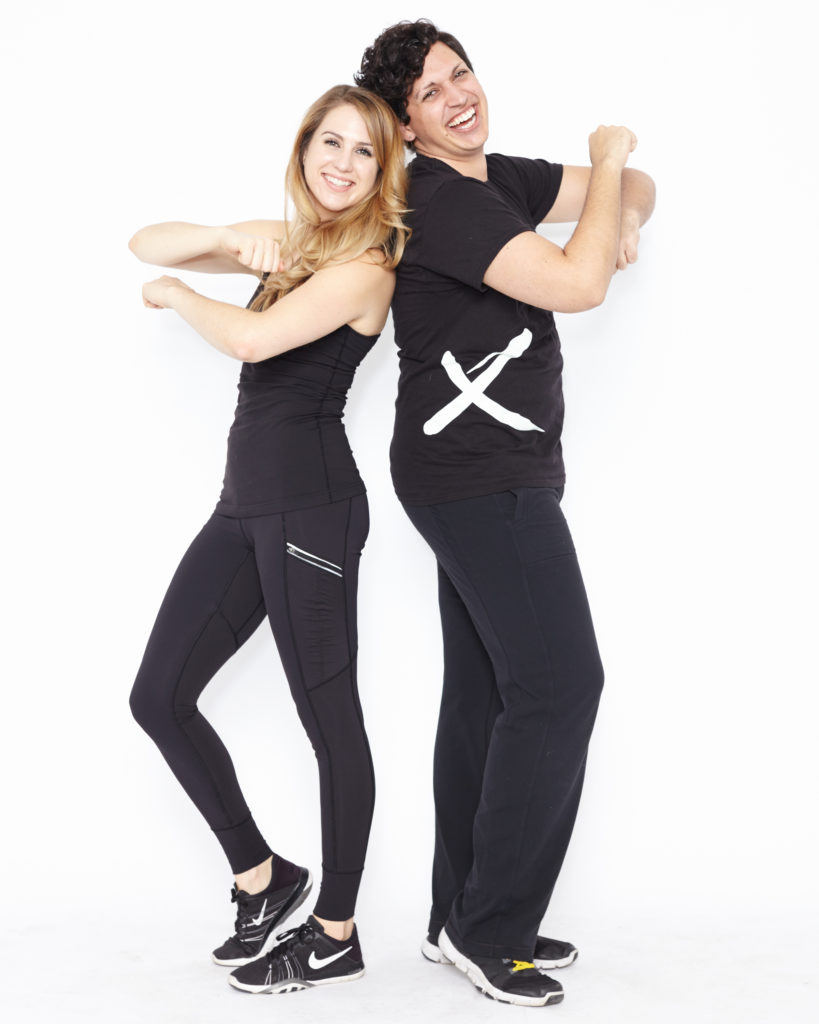I read a quote a couple of weeks ago by Paul Chucks that read “An honest enemy is better than a friend who lies.” I don’t know who this Paul Chucks is (don’t bother googling him – I came up with nothing of substance), but he did make me pause and reflect on the relationships I have with my friends. I felt pretty grateful when I realized that, to the best of my knowledge, most of my friends have never flat-out lied to me for any nefarious purpose. However, I started to wonder about all the white lies I may have been told…and how often I myself have told them. I think it’s safe to assume that we have all shaded the truth here and there or held our tongues to avoid hurting someone’s feelings, and that is sometimes a good thing. But when something really matters, it can be detrimental to hold back.
In last week’s blog, I discussed the difference between negative feedback and constructive criticism and how important it is to actively seek the latter. As group fitness instructors, it is the key to improving our teaching skills. People often struggle to say anything that might sound less than positive when asked. Personally, I always want to know the truth so when I ask others for feedback, I often stress that I don’t want them to be nice or spare my feelings. The truth may sometimes hurt but I’d rather not operate under a false sense of security.
In general, it’s best to avoid asking close friends or family for feedback on your teaching, especially if they are not fitness professionals, because they usually will be biased in your favor and/or feel uncomfortable with the idea of potentially hurting your feelings. If they haven’t taken many group exercise classes of the format you are teaching, or have not worked as an instructor, they also may not know what to look for in order to give you constructive advice. I recommend asking your trainer or a veteran instructor you respect to take your class (or watch a video of you teaching), and make it clear that you want constructive criticism to help you grow as a fitness professional. Just be ready and open to hearing some things that you may find surprising or even unwelcome.
Conversely, if you are asked for feedback from other instructors, be kind but honest and specific. You will be doing them an injustice otherwise. Your feedback may actually help them make the changes they need to grow as instructors, thus growing their class size.
When a fellow instructor I admired took my BollyX class a few years ago (let’s call her Nikki for convenience), I asked her for her thoughts after class. She was predictably nice so I had to prod a little to get past her initial hesitation to say anything specific about where I could improve. If I’m being completely honest, I secretly hoped she would continue saying that she thought I did “awesome” even though I was prodding her for feedback. I just really wanted to wow her. Now, I know I said I wanted to hear the truth, but hey, I’m human and I couldn’t help it – I felt a little disappointed when she eventually told me that I could have been more interactive and vocal to hype the class up. I was always a “smiley” instructor but I rarely made any sound. I was kind of like a mime because I felt so self-conscious about hamming it up or making any kind of noise. Nikki on the other hand is naturally boisterous with a big personality; when she teaches, those qualities shine.
Naturally, I was reluctant to incorporate Nikki’s recommendation into my teaching at first because I was afraid of looking silly (what if I hoot and no one responds? Oh the horror!!!). I also didn’t want to copy Nikki’s style or anyone else’s for that matter because I knew it would not be genuine. But her feedback elevated my teaching in a significant way. The more I played her words over in my mind, the more I felt stupid for being afraid to look stupid! I asked myself “why can’t I be interactive and vocal in my own way? Why can’t I let go of my inhibitions and be the type of instructor I want to be?” – to discover my own “Sasha Fierce” if you will. How can I expect my students to let go of their inhibitions if I don’t?
 I realized that in some ways, fear is a choice. Before you decide I’m a crazed person spouting nonsense and move on to Instagram, hear me out. We may not be able to control the visceral response to something that intimidates us but we do choose what actions we take as a result of it. I could have played it safe and ignored Nikki’s feedback. I could have stayed in my comfort zone and been happy with my status quo as an instructor with the participants who liked my style. However, I knew I never would discover my full potential if I didn’t choose to put my fear aside and just do it.
I realized that in some ways, fear is a choice. Before you decide I’m a crazed person spouting nonsense and move on to Instagram, hear me out. We may not be able to control the visceral response to something that intimidates us but we do choose what actions we take as a result of it. I could have played it safe and ignored Nikki’s feedback. I could have stayed in my comfort zone and been happy with my status quo as an instructor with the participants who liked my style. However, I knew I never would discover my full potential if I didn’t choose to put my fear aside and just do it.
Ok so I’m lying – one doesn’t simply put their fear aside like a glass of wine at the end of a meal. At my next class, I had to pep-talk myself for 30 seconds into simply yelling “hey!” during my favorite song – something so innocuous! It was a total dud in the end and I felt completely ridiculous, but once I got over that initial fear and realized I didn’t die, I started to build the confidence to experiment more with my voice and body language. I learned to cheer my class on as the music builds and I found myself becoming much more playful in general, which helped me connect with my students as well as boost the energy in the room. I saw a major difference in how people respond to me after I made this change, and I owe it all to the feedback I got from Nikki – an excellent group fitness instructor with a great following.
Moral of the story in this blog series? Don’t shy away from hard lessons – embrace the feedback you receive and incorporate it into your teaching through practice. Film yourself after you’ve spent some time working on the feedback you were given and/or ask your mentor to watch you teach again for a follow-up. If applicable, try to gauge how your students respond to the changes you make in class. It may take a while before you achieve your goal or notice a marked difference in class size but keep in mind that fitness is a journey and everyone has a different path. For some of us, it may be longer or more difficult than for others, but none of us – no matter how experienced – is perfect or will ever reach a point where we are done improving. We all have areas that we need to work on – I can’t even begin to count how many I have!
Ultimately, having a growth mindset (being open to learning) is the most important quality to possess as an instructor; that desire to make improvements is what will help us develop our skills and eventually pack our classes. You may see others post videos on social media with a million students behind them and wish you could pack a room in the same way, but we often forget to think about how much hard work and time goes into building such a following. It ALL starts with your mindset.
“Don’t compare your chapter 1 with someone else’s chapter 15. Follow your own path, write your own life story, and never give up on yourself.” – Unknown

About the Author: Dalia always dreamed that dance would play a major role in her life but as a “good middle eastern girl,” she never pursued her passion seriously and grew up spending hours learning dance moves from music videos and choreographing to Salt ‘n’ Pepa songs in her bedroom. After 10 years of working in Finance, she found herself succumbing to an unhealthy lifestyle and decided to get fit again by doing what she loved most. She is so thankful to BollyX for making her dream come true and is truly happy to be a part of the Regional Trainer Team.
